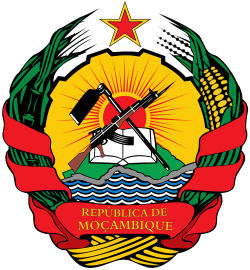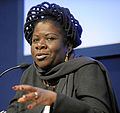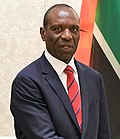| No. | Portrait | Prime Minister | Took office | Left office | Time in office | Party | Election |
|---|
| Portuguese Mozambique |
|---|
| 1 | | Chissano, Joaquim Joaquim Chissano
(born 1939) | 20 September 1974 | 25 June 1975 | 278 days | FRELIMO | — |
| People's Republic of Mozambique |
|---|
| Post abolished (25 June 1975 – 17 July 1986) |
| 1 | | Machungo, Mário Mário da Graça Machungo
(1940–2020) | 17 July 1986 | 1 December 1990 | 4 years, 137 days | FRELIMO | — |
| Republic of Mozambique |
|---|
| (1) | | Machungo, Mário Mário da Graça Machungo
(1940–2020) | 1 December 1990 | 16 December 1994 | 4 years, 15 days | FRELIMO | — |
| 2 | | Mocumbi, Pascoal Pascoal Mocumbi
(1941–2023) | 16 December 1994 | 17 February 2004 | 9 years, 63 days | FRELIMO | 1994
1999 |
| 3 | | Diogo, Luísa Luísa Diogo
(1958–2026) | 17 February 2004 | 16 January 2010 | 5 years, 333 days | FRELIMO | 2004 |
| 4 | | Ali, Aires Aires Ali
(born 1955) | 16 January 2010 | 8 October 2012 | 2 years, 266 days | FRELIMO | 2009 |
| 5 | | Vaquina, Alberto Alberto Vaquina
(born 1961) | 8 October 2012 | 17 January 2015 | 2 years, 101 days | FRELIMO | — |
| 6 | | Rosário, Carlos Carlos Agostinho do Rosário
(born 1954) | 17 January 2015 | 3 March 2022 | 7 years, 45 days | FRELIMO | 2014
2019 |
| 7 | | Maleiane, Adriano Adriano Maleiane
(born 1949) | 3 March 2022 | 15 January 2025 | 2 years, 318 days | FRELIMO | — |
| 8 | | Levy, Maria Maria Benvinda Levy
(born 1969) | 15 January 2025 | Incumbent | 1 year, 2 days | FRELIMO | 2024 |








